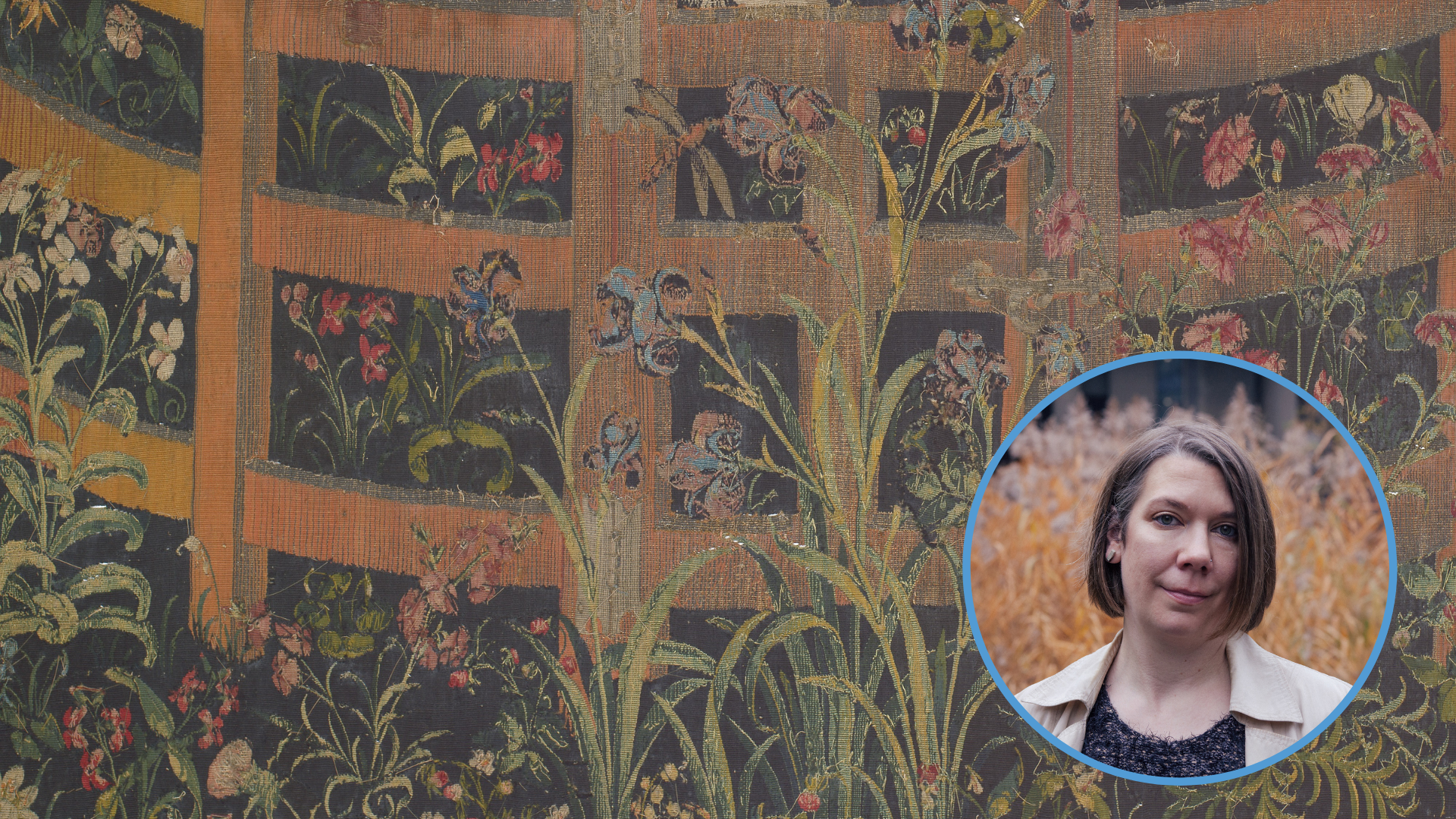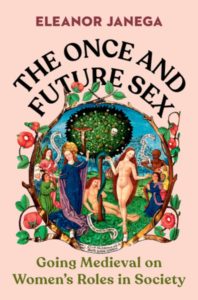
Eleanor Janega teaches medieval and early modern history at the London School of Economics. The creator of the popular blog Going Medieval and author of The Middle Ages: A Graphic History, she lives in London.
We spoke with Eleanor about her next book The Once and Future Sex: Going Medieval on Women's Roles in Society, uplifting the lives and resistances of "ordinary" historical women, and why it is important for everyone to learn about the medieval past.
 In exploring medieval ideas and expectations of women, The Once and Future Sex shows the persistence and adaptability of misogyny—the way society’s subjugation of women has remained static even if its ideas of womanhood have changed. At the same time, the book advocates for a remaking of these ideas in our own time and for a more equitable future. What inspired you to write this book?
In exploring medieval ideas and expectations of women, The Once and Future Sex shows the persistence and adaptability of misogyny—the way society’s subjugation of women has remained static even if its ideas of womanhood have changed. At the same time, the book advocates for a remaking of these ideas in our own time and for a more equitable future. What inspired you to write this book?
At the moment we are at a cultural juncture were many regressive and harmful ideas, whether about BIPOC, LGBTQ+ people, or women are reasserting themselves. In terms of the situation for women in particular, we are seeing a lot of expressly misogynistic ideas returning via the so-called ‘manosphere’. There even alleged sex traffickers can be hailed as influencers. Similarly conservative pseudohistorical demands to “return” to an imagined past where women were meek, submissive and homebound are also gaining in traction. Because of my research as a medieval historian, I am acutely aware of the fact that the arguments that we are straying from a “traditional” situation for women are entirely false. Moreover, ideas about why women need to be controlled and retreat into the domestic sphere, while often portrayed as “scientific” are entirely new. We remake our justifications for why women aren’t entitled to full equality with men constantly, the only thing that historically remains the same is that women are judged wanting. I felt like it was important to arm people with the historical facts of the matter so they could push back against the misogynistic tide.
While The Once and Future Sex delves into male medieval thinkers’ conceptions of gender and sex, it also emphasizes accounts of medieval women to show how real women of the era lived, worked, and thought. What was your research process for the book like?
The first thing I did was come up with the themes that I wanted to cover in terms of research: beauty standards, sexuality, and social and work expectations. From there I read a lot. There is an absolute wealth of wonderful academic work on medieval women and it helped to push me in search of materials I hadn’t worked with before. Because much of the book was written during lockdown, I spent a lot of time looking at the digitized manuscripts on various library websites, particularly the British Library, the Bibliothèque nationale de France, and the Národní knihovna České republiky. I also sought out edited collections of primary resources that I could scour at home.
Did you encounter anything unexpected or surprising while working on this book?
One of the things I found most surprising was the lack of descriptions of how people looked in ancient and early modern literature. The “literary portrait” that describes a character really doesn’t come in to its own until the medieval period and I find that fascinating. It is nice to be able to track where certain ideas come from, and show once again how medieval people were actually a really intelligent and interesting bunch of people who pushed our world forward.
Why is it important for the public to learn about the medieval past? What do you hope readers will take away from The Once and Future Sex?
Because people aren’t often given the opportunity to learn about medieval history myths about it are often used to justify some of the worst urges of our own modern society. When you start to learn more about medieval history you can reject the idea that “things have always been this way” or that this is the best that things can be compared to an ignorant “backward” time. I want readers to see that medieval people had sophisticated justifications for how they ordered society and treated women, much like we do, but that fundamentally both theirs and ours are social constructs. We don’t have to accept either their or our ideas about women as secondary.
What are you proudest of within the book?
I would like to think that it does a good job of introducing really interesting and complex ideas and historical examples, but is still fundamentally fun. This isn’t an “eat your vegetables” book. Medieval history is funny, interesting, and absorbing. Learning about women’s roles in the past can be a bit frustrating, sure, but it is still a joy. I think that comes across here.
Is there a female figure from the medieval period that particularly inspires you or that you wish was more widely known?
The answer here is all of them, but I am particularly interested in getting out the stories of ordinary women. It seems that we only ever get to hear about the most exceptional medieval women, and I of course love Joan of Arc, Hildegard of Bingen, or Eleanor of Aquitaine (who I am, incidentally, named after). But what is really interesting is seeing how ordinary women lived. I start the book off with the story of a woman called Domka living in Prague. She draws the suspicion of the people in her parish because she lives with a bunch of other women and no men, even though she is married. I love thinking about how it is she came to move out on her own with a bunch of friends and start up a store selling herbal remedies. It’s such a little slice of life and shows how everyday women can push back on social boundaries even in seriously restrictive conditions. I think that is something to celebrate.
Have you read anything recently that you really loved? Are there any books coming out that you are looking forward to?
I recently loved Matt Loder’s Painted People: Humanity in 21 Tattoos, Estelle Paranque’s Blood, Fire, and Gold: The Story of Elizabeth I and Catherine di Medici, as well as Alex Williams and Jeremy Gilbert’s Hegemony Now. In terms of fiction, I finally got around to reading The Haunting of Hill House last month and had to sit around for hours just thinking about what an incredible writer Shirley Jackson was. Like most millennials I also loved Sally Rooney’s Beautiful World, Where Are You. I am really looking forward to Nana Kwame Adjei-Brenyah’s Chain-Gang All Stars as well as Mattie Lubchansky’s Boys Weekend which are both out soon.


